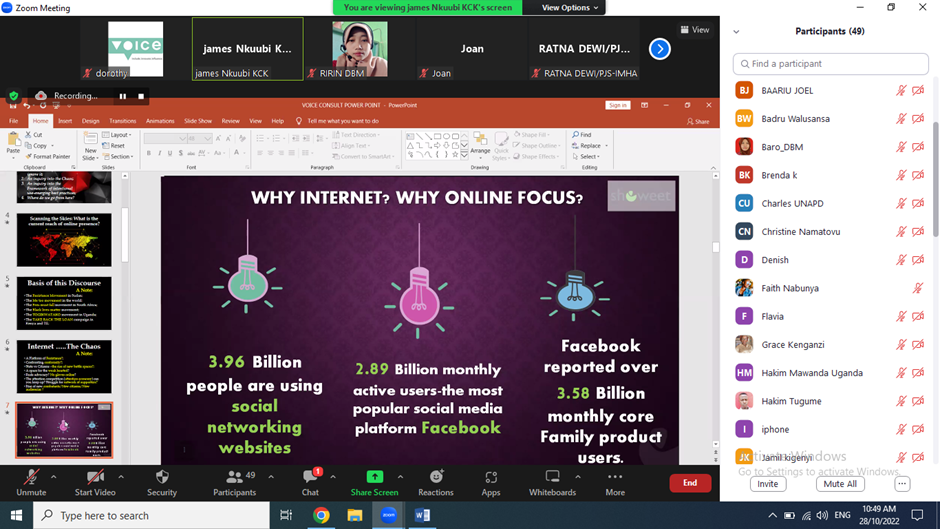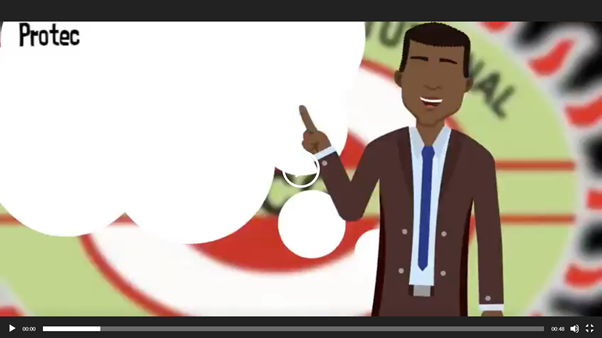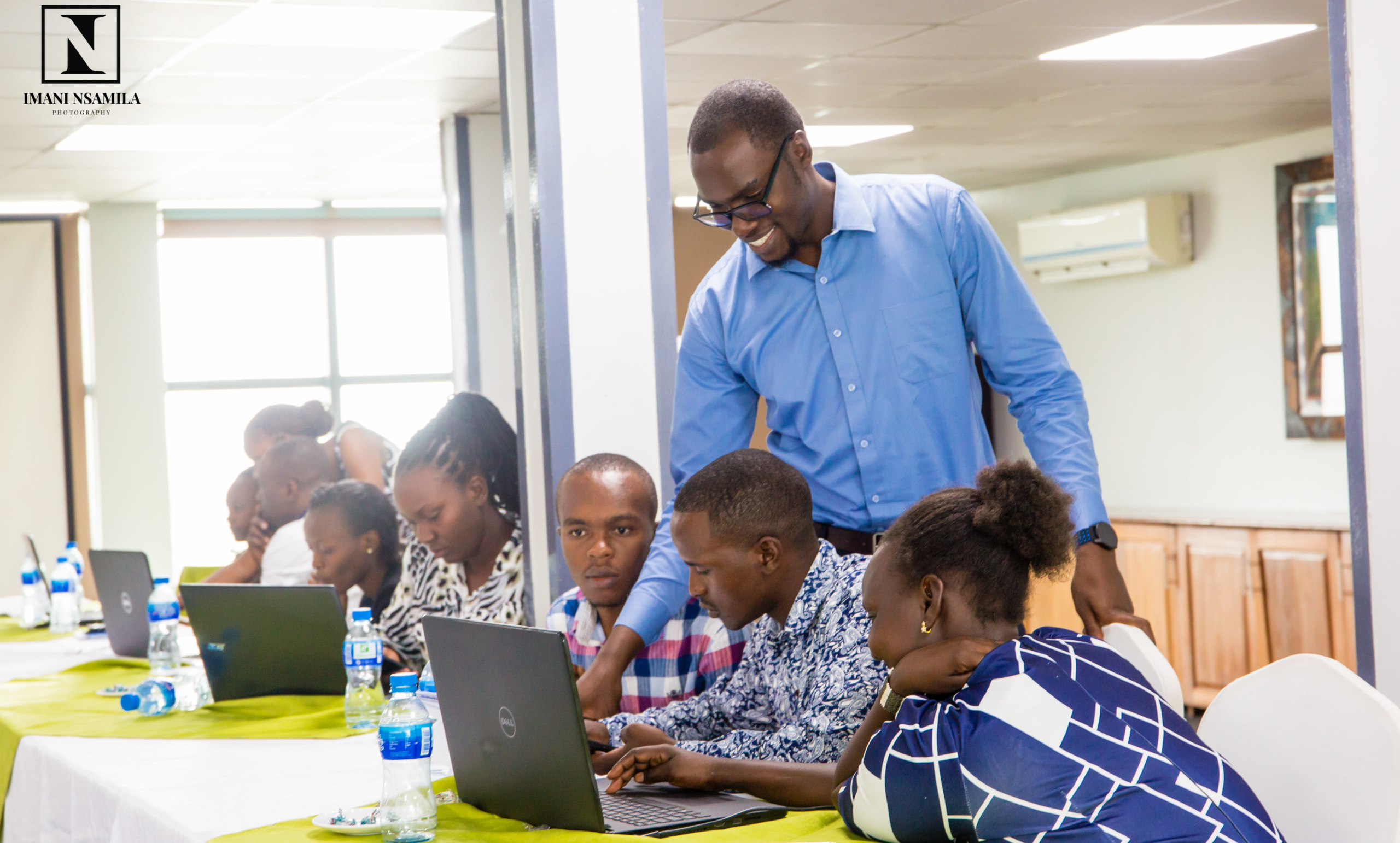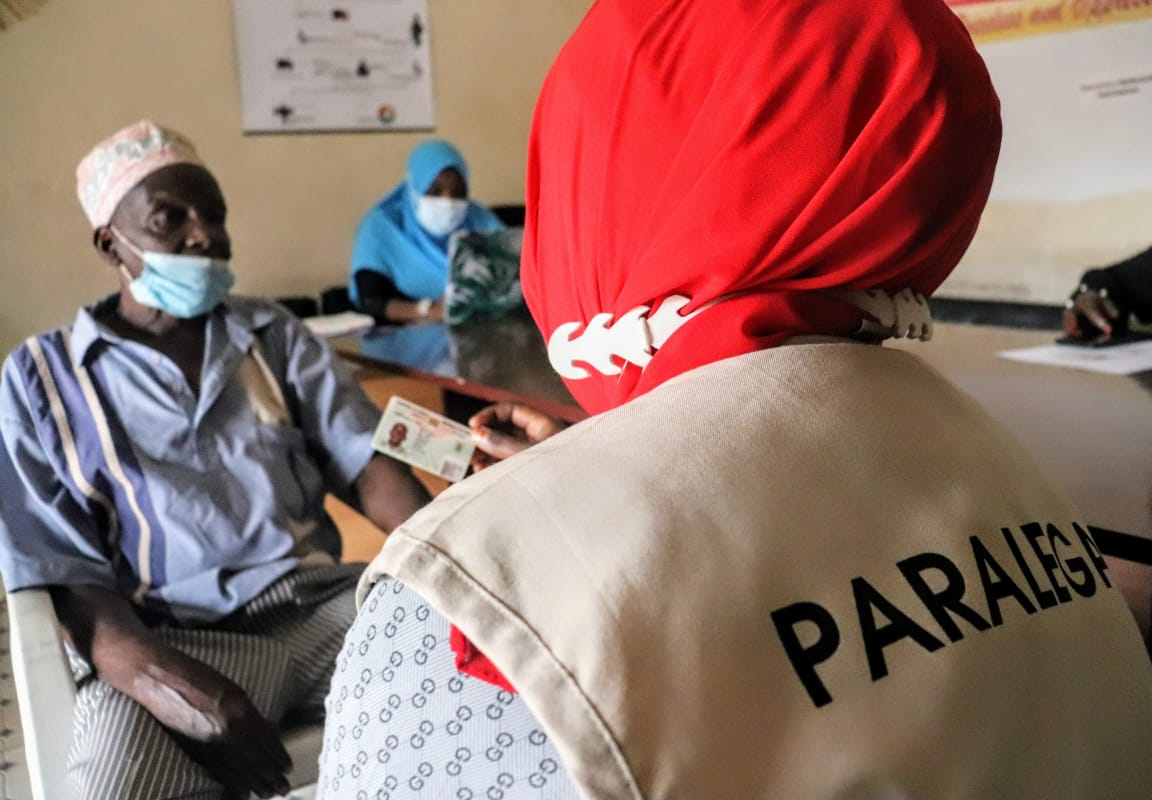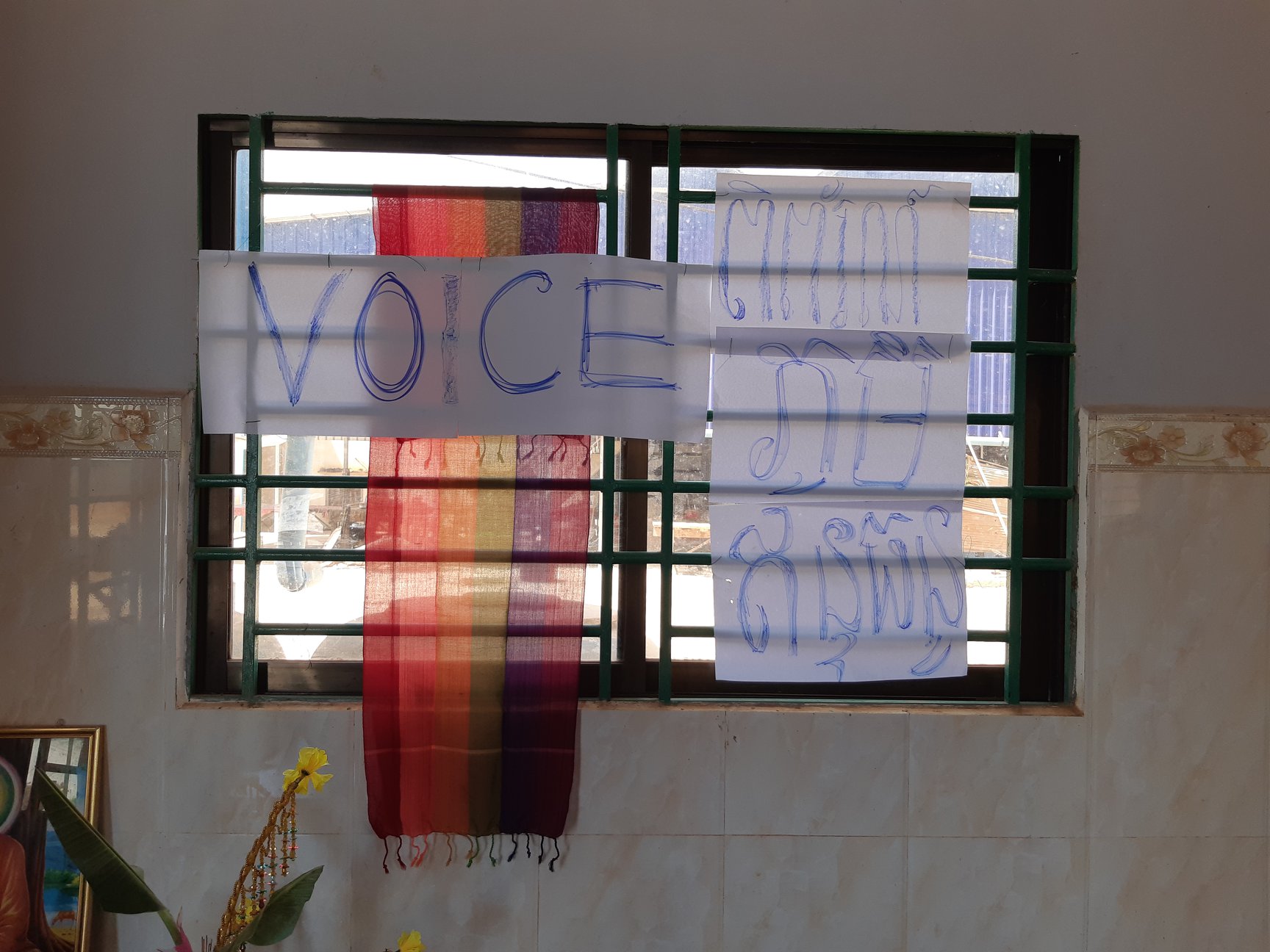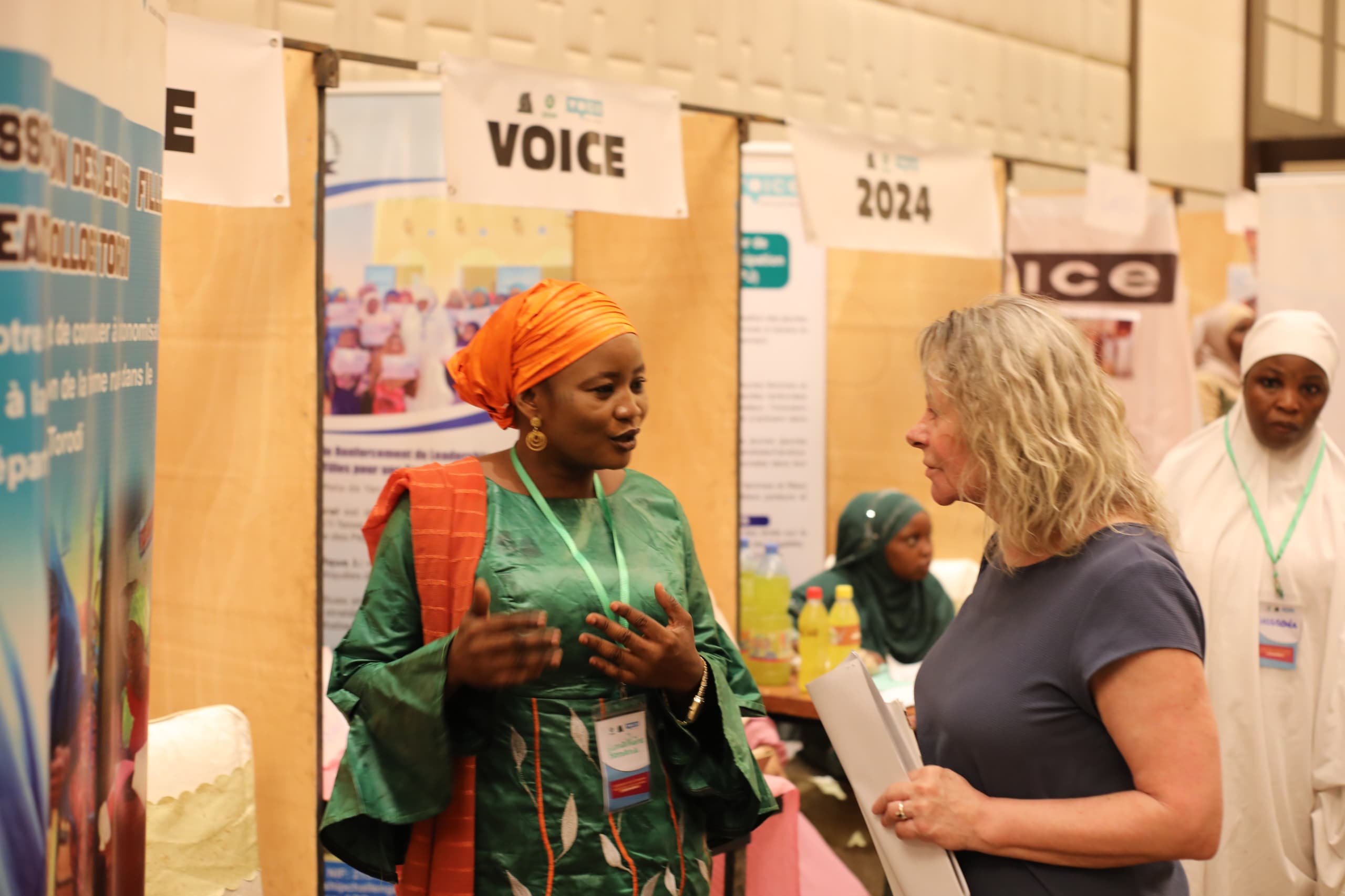“The experience of defending human rights is an experience of a lifelong struggle”
Voice(s) Honouring Human Rights Day
Published on the 10th of December 2020
Introduction
Today is International Human Rights Day. This day is observed every 10th day of December since the adoption of the Universal Declaration of Human Rights in 1948 by the United Nations General Assembly.
It decreed inalienable rights that nobody should be discriminated against based on their race, colour, religion, sex, language, political or another opinion, national or social origin, property, birth or another status.
As Voice and its partners honour this day worldwide, it comes on the backdrop of Covid-19 which has compounded everyone’s way of life to a new normal. A new normal that has led to an increase in human rights violations and even further restrictions to civic space. In Kenya for instance, on an early morning in May, the government evicted close to 8,000 people including children from Kariobangi North, an informal settlement. This was done without consideration for an alternative shelter and disregard of a court order halting these evictions. Similarly, on 15th May 2020, the government evicted 1,000 families in another informal settlement in Ruai. The evictions took place on a rainy night. Little time or alternatives were given to these families whose lives were turned upside down due to job losses attributed to Covid-19.
Kenya and the Philippines
Human rights defenders and organisations that we call rightsholders have stood in the gap of inequality and spoken truth to power. Listen to for example the Nubian Rights Forum and Pastoralist Development Network of Kenya both in Kenya who are challenging the digitisation strategy the Government wants to pursue. The Kenyan Government’s agenda is great but it further excludes minorities and through this, the Nubian Rights Forum wants to command their voice and create a seat at the table. Click here to listen to that conversation.
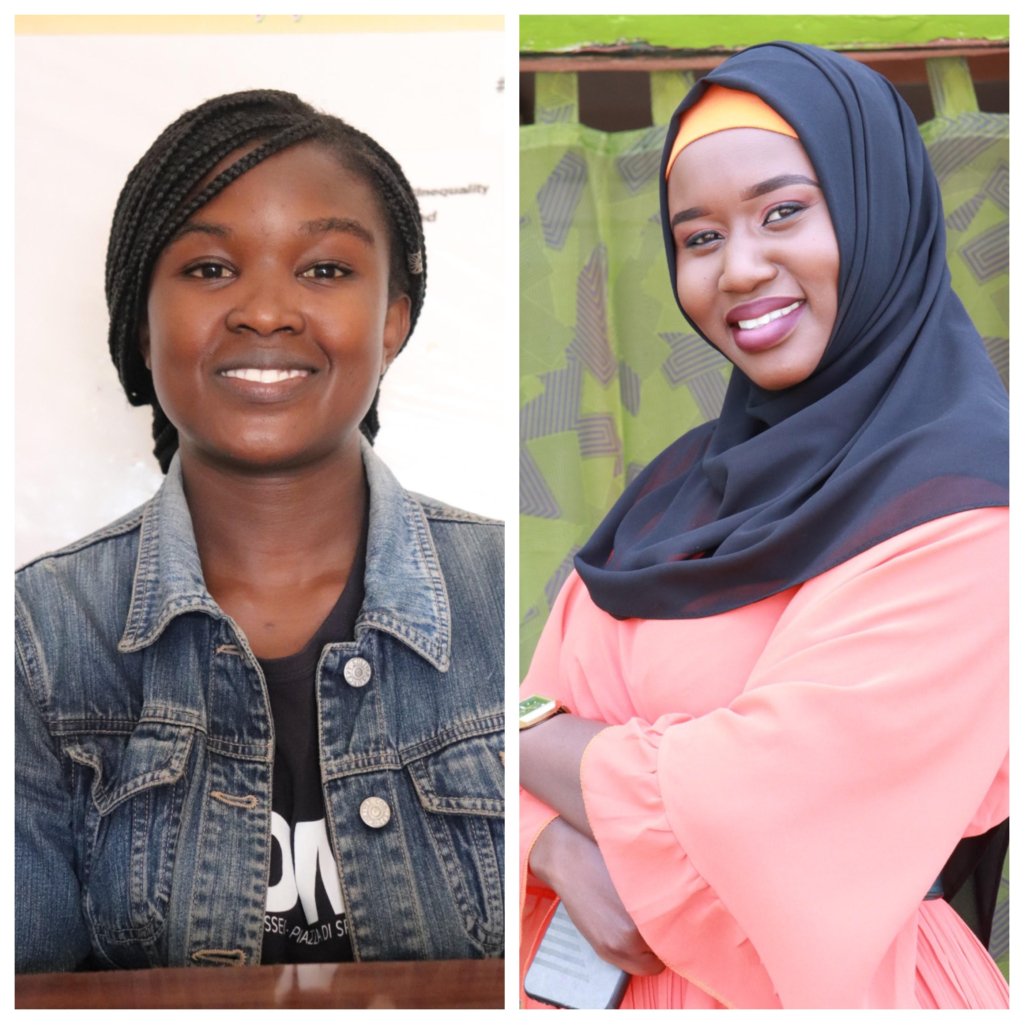
Additionally, in the Philippines, the bravery of human rights defenders has not been acknowledged enough as they continue to tread on thin ice in fighting for the rights of all. They have surmounted the Anti-Terrorism Law in the Philippines which loosely defines what terrorism is or who is considered a terrorist, the Defenders are not tamed to the side-line. Despite baseless arrests and red-tagging (being tagged as a communist front), their strength shines through, together with the communities they serve. Here we catch a glimpse of their experiences, and we invite you all to listen to their calls.
From Advocate for Human Rights in Aurora Province, Inc.,
“Besides red-tagging, our safety and security including ten of our family members have been at stake. Other staff members have been forced to go to the military camp to talk (and surrender) to the military. As human rights defenders, we are the target of attacks by state forces. We must protect and defend ourselves and our organization against the state persecution while also helping to defend the rights of our local communities. The state forces trials to isolate us and other progressive non-government organisations from the community organisations. According to them, there should be a withdrawal of support to “leftist organisations” which the local organisations have refused to do. The state forces must continue to respect human rights, especially the right to form associations, and the right to petition or protest with the government to convey the people’s legitimate demands. Stop the red-tagging of organisations and individuals who actively advocate issues for the sake of the rightsholders groups. The Supreme Court should act upon the petitions numerous groups have filed to the Anti-Terrorism Law, questioning the constitutionality of the said law”.
Indonesia
In Indonesia Kania Mamonto of the Asia Justice and Rights Indonesia shared their passionate call as captured below.
“Throughout my journey as a human rights defender, I realised that I could also experience secondary trauma. I feel that the more intense and dynamic my relationships with the victims, the more I feel hurt because of empathy from hearing their painful experiences. And I think it is very important for fellow defenders to pay attention to this issue. One thing that fellow defenders need to realise is that we must not see victims as other people, and we must not put them in a lower position than us. What makes me want to celebrate Human Rights Day is to celebrate the will and the effort on how to achieve equality. Over time, I realised that equality doesn’t mean that when we get affirmative action, we automatically get equal access. For me, the experience of defending human rights is an experience of a lifelong struggle; therefore we need to celebrate that Human Rights Day, as long as we live in this unbreakable impunity”
Furthermore, our partners in Indonesia talked to two human rights defenders and they shared these videos (Bahasa only for the moment).
Tanzania
In Tanzania, the participation of women in the political space has been low and the systemic patriarchy has not made it easy for women to hold positions of power. Last year, nine organisations in Tanzania came on board to advocate for change in terms of advocating for youth and women to be involved in political participation. Among these organisations are; Tanga Paralegal Aid Scheme for Women and Children, Vision for Youth (V4Y) and Mwanamke na Uongozi (MnU) who are strengthening the capacity for women positivity to participate in political leadership. In the last election, three women successfully ran for office and despite not winning the final election, they are fired up to encourage more women to access political spaces. Listen in (Interview in Swahili) on a woman leader who vied for elections in Tanzania.
While still in Tanzania, the Okoa New Generation in Tanzania are firing up the voices of persons with disabilities, especially young people in indigenous communities to get equal opportunities to participate in democratic and development issues.
Uganda and Cambodia
Let’s move to Uganda, popularly it prides itself as the Pearl of Africa, and we have a pearl called the Center for Constitutional Governance led by Sarah Bireete who works to reclaim and protect civic space. Martin Luther King said, our lives begin to end the day we become silent about issues that affect us. In the same way, Richard Kawesa a Uganda’s songwriter and singer said: “A man who cannot equitably earn from his labour has no right to freedom”. The best safeguard for human right protection is an enlightened and empowered citizenry.
Moving to Cambodia’s CamSEAN took the full brunt of the police forces. On 23rd September 2020 CamASEAN’s founder, Srun Sron and his colleagues were banned and held at a local police post in Bati district, Takeo province for around ten hours because of their Facebook live activity. This has greatly affected CamASEAN’s activities as they were not able to organise their community rainbow exhibition face-to-face because of police restriction. Read here for the full story in Khmer.
Niger and Mali
In West Africa, Niger to be precise, the presidential elections will be held on 27th of December 2020. For the first time in the country’s history, an elected president is expected to succeed another president who was himself elected and not brought to power through a coup d’état.
However, this promise of democratic change is coupled with the enormous shrinking of civic space and fundamental freedoms in the country, which has been intensifying since the end of 2017. Niger, which has adopted many restricted laws in the last two years, has become the scene of mass arrests of civil society actors and journalists and systematic bans on peaceful assembly – itself a constitutional right.
Three members of Tournons La Page a Voice partner, were arrested on 15th March 2020 for exercising their constitutional rights to peacefully denounce a corruption scandal within the Ministry of National Defense, and were jailed for more than six months and then released without trial
Listen to the testimonies of Moudi Moussa, Halidou Mounkaila and Maikoul Zodi. (testimonies in French)
Lastly, in Mali the partner COMADDH ran a campaign that addressed many issues and particular attention was paid to three rightsholder groups: women, youth and sexual minorities.
Two shows on Kunafoni (WEB TV) were dedicated to women’s rights defenders: the first was about women’s rights to access land; the second was about women activists protecting the rights of women in conflict. The shows attrached about 200 to 300 people, mainly women and young people. Furthermore, during the “Grand Dialogue” programme recorded by Studio Tamani, human rights defender Assaba Keita spoke about the challenges faced by women’s rights activists and their important work.
The campaign was also an opportunity to give a voice to sexual minorities. Due to discrimination, threats and attacks, activists working with sexual minorities in Mali have to go into hiding in order to work, they are also marginalised and isolated within the human rights community.
An activist who works to protect the rights of sexual minorities and to support people affected by HIV/AIDS joined the Grand Dialogue to talk about his work and the challenges he faces. The radio programme was broadcast on a network of over 70 radio stations across Mali, reaching a very wide audience. Additionally, two project partners (Fatouma Harber in Timbuktu and Fatimata Touré in Gao) organised a series of listening clubs for two rightsholder groups (women and youth).
Finally, listen to a Black White Mirama Slammer (Spoken word artist) from Niger
Together, we can stand up for human rights through building of social movements as one of the principle social norms through which as a collective we amplify voices about rights, welfare and well-being for ourselves and others by engaging different for a to duty bearers

